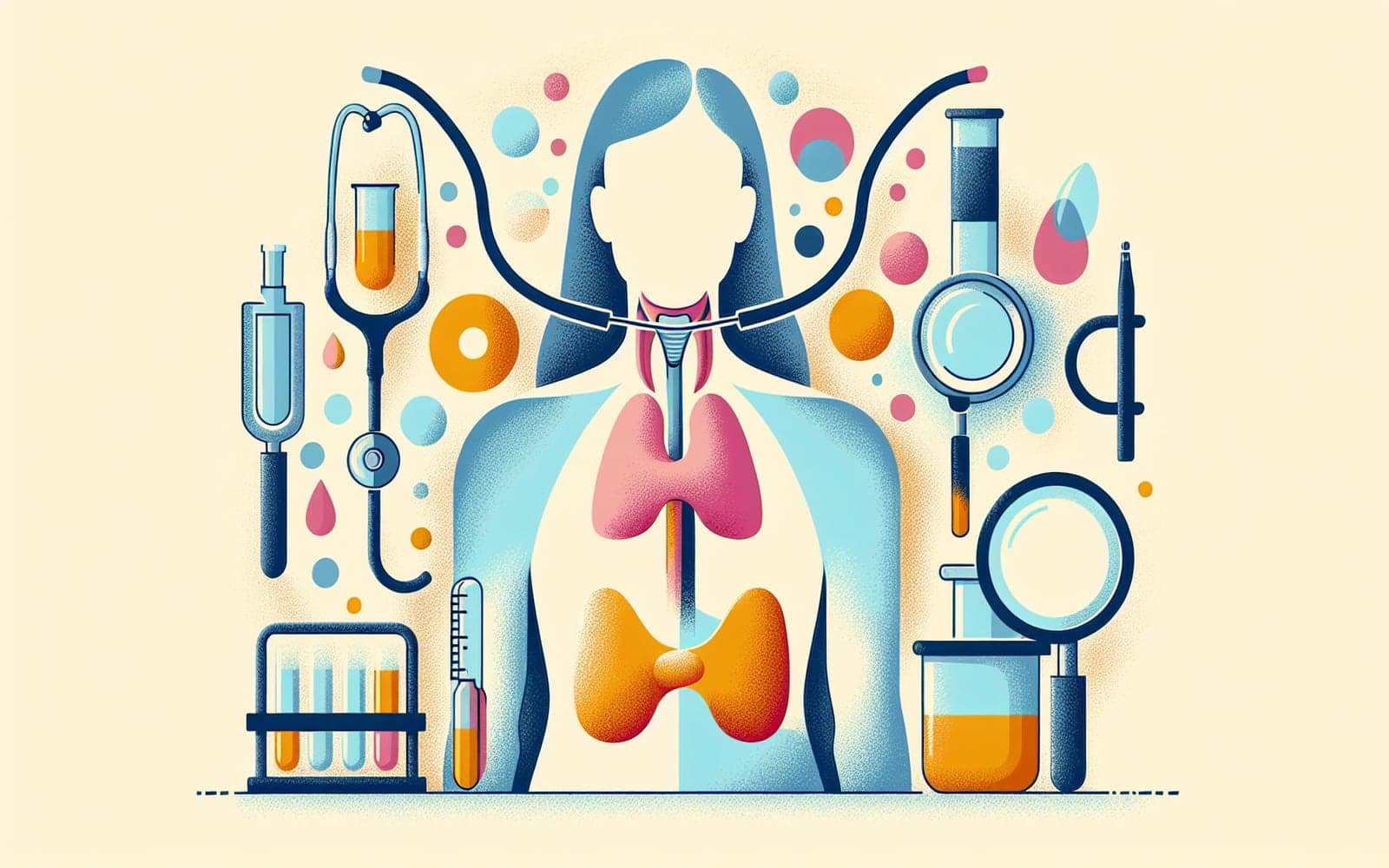The Key Tests for Diagnosing Hypothyroidism: What You Need to Know
Published: Dec 20, 2023
Diagnosing hypothyroidism accurately is crucial for effective treatment. Discover the essential tests used to confirm this condition and what they reveal about your health.
Contents
Thyroid Function Tests
The most common tests for diagnosing hypothyroidism measure the levels of thyroid hormones in your blood. These include TSH (Thyroid Stimulating Hormone) and T4 tests. High TSH and low T4 levels typically indicate hypothyroidism, signaling that your thyroid isn’t producing enough hormones.
The Role of Imaging
In some cases, doctors may use imaging tests like ultrasounds to examine the thyroid gland's structure. This can help identify any physical abnormalities or nodules that might affect thyroid function. While not always necessary, imaging can provide a clearer picture of what's happening with your thyroid.

Understanding Antibody Tests
Antibody tests can reveal autoimmune causes of hypothyroidism, like Hashimoto's disease. These tests check for the presence of thyroid antibodies in your blood, which can attack and damage the thyroid gland. Identifying these antibodies helps in tailoring the right treatment plan.
Frequently Asked Questions
TSH and T4 blood tests are key for diagnosing hypothyroidism.
Yes, ultrasounds can identify structural thyroid issues.
They identify autoimmune causes like Hashimoto's disease.
Yes, they help assess hormone levels and antibody presence.
Key Takeaways
Understanding these tests can empower you to take an active role in managing your thyroid health.
Discuss these diagnostic options with Doctronic to ensure you get the tests you need for accurate diagnosis.Related Articles
References
Smith TJ, Bahn RS, Gorman CA. Connective tissue, glycosaminoglycans, and diseases of the thyroid. Endocr Rev 1989; 10:366.
Squizzato A, Romualdi E, Büller HR, Gerdes VE. Clinical review: Thyroid dysfunction and effects on coagulation and fibrinolysis: a systematic review. J Clin Endocrinol Metab 2007; 92:2415.
Always discuss health information with your healthcare provider.

